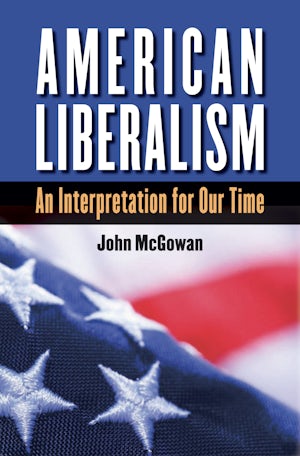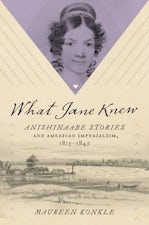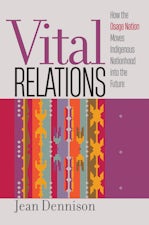American Liberalism
An Interpretation for Our Time
By John McGowan
288 pp., 6.125 x 9.25, appends., notes, index
-
Paperback ISBN: 978-0-8078-6180-6
Published: September 2009 -
Large Print ISBN: 978-0-8078-8507-9
Published: December 2009 -
E-book EPUB ISBN: 978-0-8078-8508-6
Published: October 2007 -
E-book PDF ISBN: 979-8-8908-8264-6
Published: October 2007
H. Eugene and Lillian Youngs Lehman Series
Buy this Book
- Paperback $37.50
- Large Print $60.00
- E-Book $24.99
- Audiobook
For Professors:
Free E-Exam Copies
In an engaging and informative discussion, McGowan offers a ringing endorsement of American liberalism's basic principles, values, and commitments. He identifies five tenets of liberalism: a commitment to liberty and equality, trust in a constitutionally established rule of law, a conviction that modern societies are irreducibly plural, the promotion of a diverse civil society, and a reliance on public debate and deliberation to influence others' opinions and actions.
McGowan explains how America's founders rejected the simplistic notion that government or society is necessarily oppressive. They were, however, acutely aware of the danger of tyranny. The liberalism of the founders distributed power widely in order to limit the power any one entity could exercise over others. Their aim was to provide for all an effective freedom that combined the right to self-determination with the ability to achieve one's self-chosen goals. In tracing this history, McGowan offers a clear vision of liberalism's foundational values as America's best guarantee today of liberty and the peace in which to exercise it.
About the Author
John McGowan is Ruel W. Tyson Jr. Distinguished Professor of the Humanities at the University of North Carolina at Chapel Hill. He is author of four other books and an editor of the Norton Anthology of Theory and Criticism.
For more information about John McGowan, visit
the
Author
Page.
Reviews
"A vigorous defense of the American liberal tradition."--Political Science Quarterly
"A full-throated, multidimensional defense of liberalism against critics. . . . Recommended."--Choice
"If we ever get to a point where a liberal renaissance in American politics comes to be . . . we'll have McGowan's book . . . to thank for that moment's inspiration."--American Book Review
"[In American Liberalism] McGowan argues passionately that Americans need to truly understand liberalism and its close relationship to democracy. . . . He's not interested in converting readers to liberalism but in ensuring that they understand its contributions to the very foundations of U.S. democracy."--Booklist
"Political consultants will say, 'John McGowan has written a spirited, on-message defense of the Liberal brand.' Intellectuals will commend his erudition and his rigorous reasoning. And general readers will cheer McGowan as a graceful writer and shrewd thinker who understands political reality and not just academic theory."--Walter Shapiro, Washington bureau chief, Salon.com, and author of One-Car Caravan: On the Road with the 2004 Democrats before America Tunes In
"'There is--and can be--nothing simple about liberalism.' So writes John McGowan in his rigorous and bracing defense of American liberalism--its stringent anti-totalitarianism, its cultural pluralism, and its radical egalitarianism. Nor is there is anything simple about McGowan's analysis. This is precisely the right book at the right time, a must-read not only for liberalism's embattled adherents but for all those, on the right and on the left, who have been trafficking in caricatures of liberalism for the past few decades. Attentive to injustices past and present, vigilant about tyrannies of all kinds, McGowan reminds us why the liberal tradition remains good to think with--and good to live by."--Michael Bérubé, Pennsylvania State University




